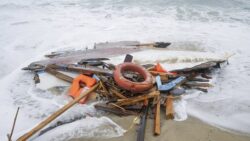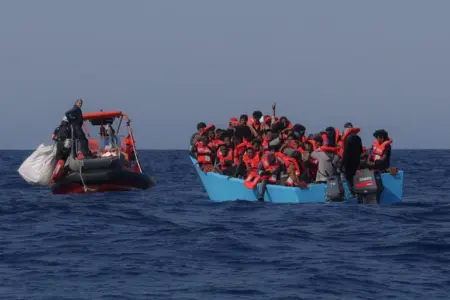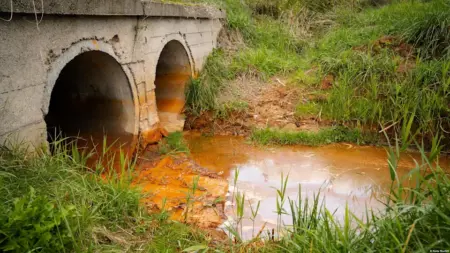The death of dozens of migrants at sea near Crotone in Italy highlights the lack of action by the EU when it comes to migrant crossings in the Mediterranean, according to a human rights organisation.
On Monday, at least 62 people died, with some still missing, after a boat carrying 200 migrants broke up off the Italian coast, which according to Sara Prestianni, from EuroMed Rights, shows the need for change on European migration policy.
“We have seen our policy mainly focus on externalisation policy, strengthen the approach with leverage and conditionality. That’s not a solution. That’s part of the problem, because externalisation policies are leading to an increase in human rights violations and the number of deaths,” she told Euronews.
“We have been clearly seeing in Crotone yesterday, the only elements and the only solution that could avoid people risking their lives at sea is to increase legal pathways and legal access to the European Union.”
The Italian authorities, including President Sergio Mattarella, have requested that the EU do more in order to manage migration and avoid loss of life at sea.
However, the European Commission reiterated the position of EU leaders at the last European summit.
“Migration is a European challenge and must be tackled together, jointly, and this is what we are doing,” Anitta Hipper, Commission spokesperson said on Monday.
“There is a legal obligation to rescue and to ensure the safety of life at sea.”
Beyond the declarations, there have been few concrete advances.
Indeed, the Commission proposed a major change on EU migration policy with its Pact on Migration in September 2020, but member states have since been stuck in negotiations.
An Action Plan for the Central Mediterranean has also been proposed to better coordinate search and rescue operations, but human rights organisations say this is not the way forward.
Sunday’s attempted crossing was not the first by migrants to go from Turkey to Italy by boat either – a longer route than usual. More and more are now trying, with over 15,000 people doing so in 2022.
EuroMed Rights says it is happening because boats from Turkey and Lebanon are avoiding Greece and Cyprus, whose authorities are pushing them back, in violation of international law.
The organisation adds that some EU countries, like Italy, are making it harder for NGO boats to save people at sea.
The idea of an EU naval mission dedicated specifically to search and rescue is also, for now, off the table.





